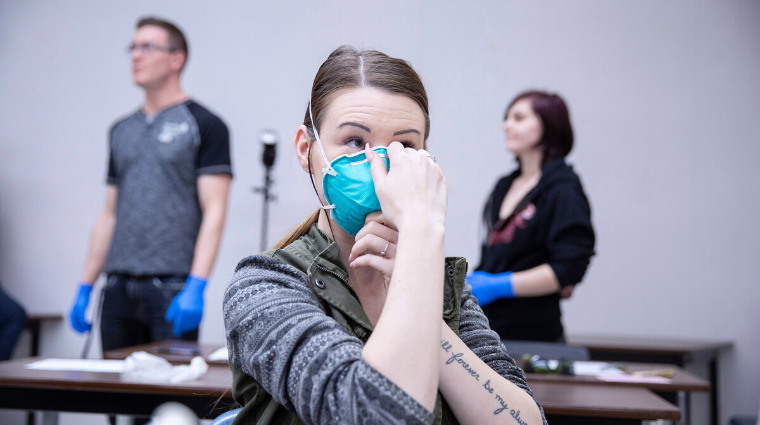The COVID-19 pandemic will go down in history as one of the largest, if not the largest, disruptive events of our lifetime. It has forced us to change the way we work, conduct business, and even interact with each other.
That COVID-19 did not exist a year ago is astounding when one considers how much has changed since stay-at-home orders were instituted this past March. Since then Saskatchewan Polytechnic graduates have been on the front lines performing essential duties to maintain health and safety while also keeping the wheels of commerce turning.
Our health-care alumni can be found in hospitals and care centres. Our skilled trades graduates are on construction sites and in manufacturing facilities. Our graduates with business, technology diplomas and degrees are there to ensure that the technology and systems we rely on so much continue to function, while other alumni are serving in critical public safety roles.
Because of our close ties with business and industry, the organizations that employ Sask Polytech graduates know our grads have the necessary skill sets, as well as practical experience to contribute from day-one on their jobs. We continuously work with more than 700 professionals across a wide range of industries, who serve as members of our Program Advisory Committees (PACs), providing always current insights and understanding of labour market demands and trends. This, coupled with our innovation expertise for business and industry sectors, for communities, and for public sector organizations solving real-world problems and hands-on learning opportunities, gives Canadian polytechnics an edge.
Ensuring that the workforce of the future continues to receive the exceptional training which employers demand has been top of mind for Sask Polytech during the pandemic. Along with the post-secondary education sector, Sask Polytech very quickly transitioned to online and remote delivery of programming.
While this shift was necessary, it was also important that the hands-on learning component that is part of Sask Polytech’s unique value proposition remained a priority. Our instructors were quick to grasp this and have been and are being creative in their assignments.
For example, while students in the Medical Laboratory Technologists (MLTs) and Combined Laboratory and X-ray Technologist (CLXT) programs were unable to use microscopes in classrooms to learn how to properly identify medical samples, Instructors created slides that students could view virtually in order to become familiar with what samples would look like normally, learning via new pathways to identify diseases and blood counts, among many other new training methods.
At the same time, students in the Media Production program shot and produced music videos using smartphones. Following approval from the Ministry of Health, a small number of Sask Polytech programs were allowed to return to campus in June so that students could finish their learning experiences in shops and labs, in order to graduate.
These examples show that even with Sask Polytech alumni on the front lines as essential workers, the pandemic did not derail efforts to ensure the next group of essential workers was receiving the education and training necessary for whatever the future holds.
It is clear to me that once the COVID-19 pandemic ends—and it will end—there will be no going back to the way things were in higher education, in employment, and indeed society. Sask Polytech and other polytechnics across Canada will play an ever-increasing essential role in retraining and reskilling those who have lost their jobs, as well as helping organizations ensure their workers have the skills, particularly the digital skills, to meet the challenges of a post-COVID-19 world.
Our graduates have shown how essential a polytechnic education can be as they continue to serve on the front lines during the COVID-19 situation—and serve as a reminder that having the education and skills to be able to adapt to disruption is key to helping organizations remain competitive, innovative and, most important, relevant. The pandemic proves that polytechnic education is the kind of disruption in higher education that will ready Saskatchewan’s workforce for the post-pandemic new reality.
Published July 2020.


